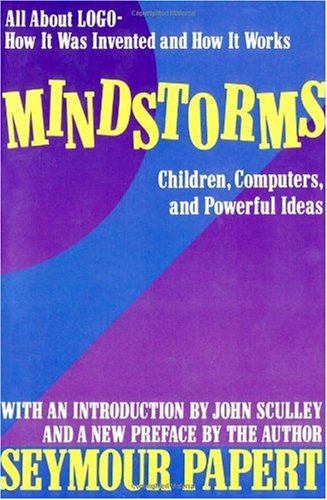The Economics of a Computer for Every Child in School
What these people are saying needs to be faced squarely. They are wrong. Let's consider the cohort of children who will enter kindergarten in the year 1987, the "Class of 2000," and let's do some arithmetic. The direct public cost of schooling a child for thirteen years, from kindergarten through twelfth grade is over $20,000 today (and for the class of 2000, it may be closer to $30,000). A conservatively high estimate of the cost of supplying each of these children with a personal computer with enough power for it to serve the kinds of educational ends described in this book, and of upgrading, repairing, and replacing it when necessary would be about $1,000 per student, distributed over thirteen years in school. Thus, "computer costs" for the class of 2,000 would represent only about 5 percent of the total public expenditure on education, and this would be the case even if nothing else in the structure of educational costs changed because of the computer presence. But in fact computers in education stand a good chance of making other aspects of education cheaper. Schools might be able to reduce their cycle from thirteen years to twelve years; they might be able to take advantage of the greater autonomy the computer gives students and increase the size of classes by one or two students without decreasing the personal attention each student is given. Either of these two moves would "recuperate" the computer cost.
Notes:
Providing a computer for every school child is not as costly as it seems, and the costs would be recuperated in improved learning, shortened schooling. These costs are 30 years old, and computers are much cheaper now.
Folksonomies: computer science education
Taxonomies:
/education (0.418958)
/education/school (0.309392)
/technology and computing/hardware/computer (0.306334)
Keywords:
conservatively high estimate (0.951018 (positive:0.649294)), total public expenditure (0.864141 (negative:-0.362354)), direct public cost (0.849856 (neutral:0.000000)), twelfth grade (0.655138 (neutral:0.000000)), cheaper now. (0.647645 (positive:0.367437)), educational costs (0.632367 (neutral:0.000000)), greater autonomy (0.623708 (positive:0.364581)), educational ends (0.618202 (positive:0.649294)), good chance (0.614243 (positive:0.437344)), fact computers (0.590093 (positive:0.437344)), personal attention (0.579558 (positive:0.364581)), school child (0.564385 (neutral:0.000000)), class (0.479494 (negative:-0.362354)), kindergarten (0.423672 (neutral:0.000000)), schooling (0.421836 (neutral:0.000000)), children (0.378560 (positive:0.649294)), student (0.366396 (positive:0.111276)), students (0.341432 (positive:0.364581)), cohort (0.314515 (neutral:0.000000)), people (0.299707 (negative:-0.600918)), needs (0.299608 (negative:-0.600918)), percent (0.295094 (negative:-0.362354)), arithmetic (0.293332 (neutral:0.000000)), moves (0.285227 (negative:-0.397778)), power (0.283747 (positive:0.649294)), kinds (0.283421 (positive:0.649294)), book (0.283377 (positive:0.649294)), presence (0.280958 (neutral:0.000000)), case (0.280956 (neutral:0.000000)), structure (0.280759 (neutral:0.000000))
Entities:
personal computer:FieldTerminology (0.833018 (positive:0.460437)), thirteen years:Quantity (0.833018 (neutral:0.000000)), twelve years:Quantity (0.833018 (neutral:0.000000)), 5 percent:Quantity (0.833018 (neutral:0.000000)), 30 years:Quantity (0.833018 (neutral:0.000000)), $20,000:Quantity (0.833018 (neutral:0.000000)), $30,000:Quantity (0.833018 (neutral:0.000000)), $1,000:Quantity (0.833018 (neutral:0.000000))
Concepts:
Education (0.945798): dbpedia | freebase | opencyc
School (0.793300): dbpedia | freebase | opencyc
High school (0.673262): dbpedia | freebase | opencyc
Personal computer (0.648064): dbpedia | freebase | opencyc
Teacher (0.545406): dbpedia | freebase | opencyc
Cost (0.523721): dbpedia | freebase | opencyc
Computer (0.517370): dbpedia | freebase | opencyc
Student (0.500100): dbpedia | freebase | opencyc





